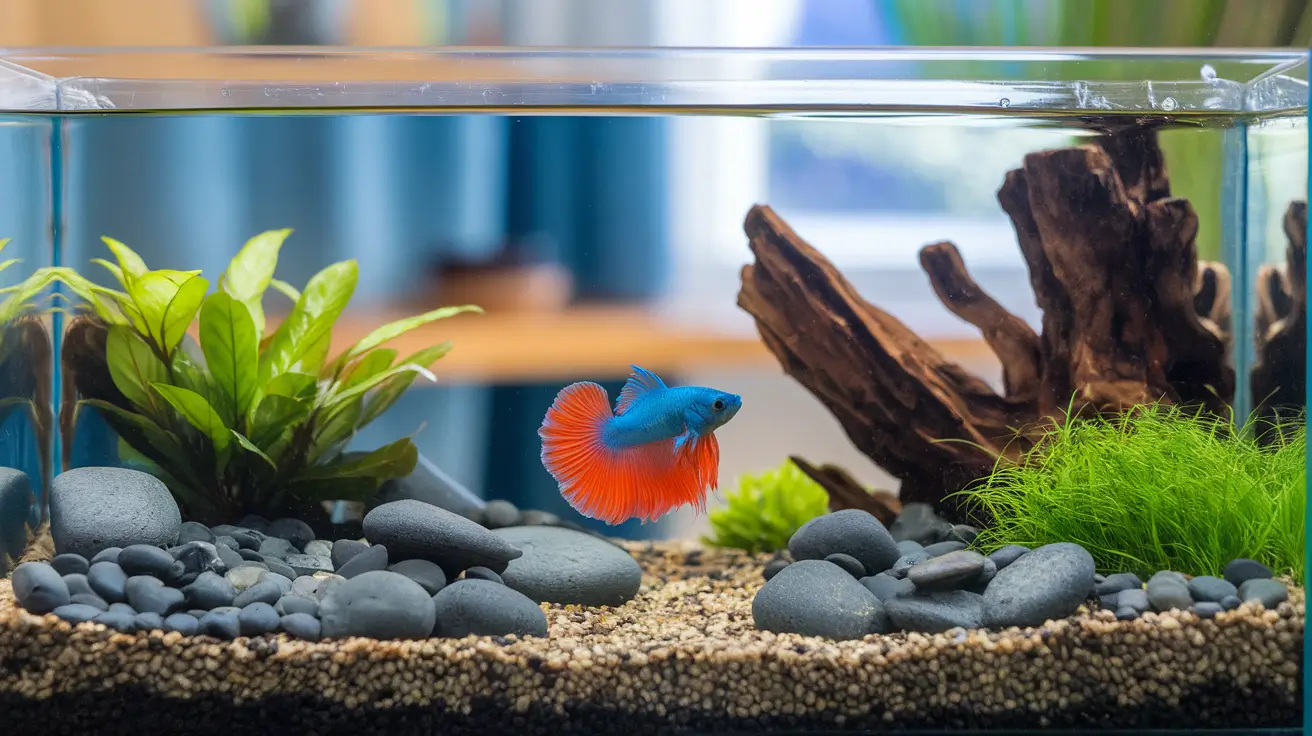Introduction to Betta Fish Care
Betta fish, known for their vibrant colors and flowing fins, are a popular choice among aquarium enthusiasts. Native to the shallow waters of Southeast Asia, these fish thrive in warm, stable environments. Proper care is essential for their well-being, as it ensures they live a long and healthy life. Understanding their natural habitat and specific needs is the first step in providing the best care for your betta fish.
Setting Up the Perfect Environment
Acclimating Your Betta
Acclimating your betta to a new aquarium is crucial to minimize stress and ensure a smooth transition. Start by floating the bag containing your betta in the aquarium for about 15 minutes to stabilize the water temperature. Gradually introduce aquarium water into the bag using a clean cup, replacing the same amount of water from the bag with each addition. This process should be repeated several times until the water in the bag matches the aquarium's temperature and chemistry. Monitor your betta for signs of stress, and if necessary, slow down the acclimation process. After approximately 30 minutes, gently transfer your betta to the aquarium using a soft-mesh net.
Aquarium Decorations
Decorations play a significant role in creating a comfortable and stimulating environment for bettas. While they do not require elaborate setups, providing hiding places and resting spots can enhance their well-being. Live plants like Java moss, Anacharis, and Amazon swordplants help maintain water quality and offer natural hiding spots. Driftwood and smooth rocks can create a natural look, but ensure they are free of sharp edges that might harm your betta's fins. Log hides, caves, and castles can also provide a sense of security and territoriality, contributing to a balanced habitat.
Maintaining Water Quality
Importance of Regular Water Changes
Regular water changes are vital for maintaining a healthy environment for your betta. Begin by preparing new water with a conditioner to remove chlorine and toxins. Use a siphon vacuum to clean the substrate and remove debris. Replace 10-25% of the tank water with the conditioned water to maintain stable water parameters and eliminate accumulated toxins. Consistent water changes help prevent the buildup of harmful substances and keep your betta thriving.
Monitoring Water Parameters
Regular testing of water quality is essential in maintaining a safe and healthy environment for bettas. Monitor levels of pH, ammonia, nitrite, and nitrate to ensure they remain within safe ranges. Proper water quality management prevents stress and health issues, contributing to the overall well-being of your fish.
Nutrition and Feeding Practices
Feeding Guideline
Feeding your betta correctly is crucial for its health. It is recommended to feed your betta once a day, offering a variety of meat-based foods such as flakes, pellets, freeze-dried bloodworms, daphnia, and frozen foods. Avoid overfeeding by ensuring your betta consumes all its food within two minutes, as leftover food can pollute the water.
Treats and Special Considerations
Treats can be a delightful addition to your betta's diet when used appropriately. Offer treats like frozen/thawed or live bloodworms and brine shrimp in moderation to prevent obesity. These treats should complement the regular diet without replacing essential nutrition.
Common Mistakes and How to Avoid Them
Overcrowding and Decoration Issues
One common mistake is overcrowding the tank with too many decorations or fish, leading to stress and aggression. Ensure decorations are free from sharp edges that could harm your betta's fins. A balanced environment with adequate space and safe decorations promotes a peaceful habitat.
Water Quality and Filtration
Maintaining water quality and having adequate filtration are crucial for your betta's health. Regularly test the water to prevent the buildup of toxins like ammonia and nitrite. Use a filter that processes the entire tank water at least four times an hour to ensure clean and healthy water conditions.
Observing and Responding to Betta Behavior
Understanding Betta Behavior
Observing your betta's behavior can provide valuable insights into its health and happiness. Look for signs of distress or changes in activity levels, which may indicate underlying issues. Understanding these behavioral cues allows you to assess your betta's well-being effectively.
Adjusting Care Routines
Based on behavioral observations, adjusting care routines is essential to meet your betta's needs. Whether it's altering feeding practices or modifying the tank environment, being responsive to your betta's behavior ensures it remains healthy and content.
Conclusion: Ensuring a Happy Betta Life
In summary, proper care for betta fish involves creating a suitable environment, maintaining water quality, providing balanced nutrition, and observing their behavior. By following these guidelines, you can ensure a long and healthy life for your betta, fostering a thriving and vibrant aquatic companion. Remember, attentive care and adjustments based on your betta's needs are key to a happy betta life.






